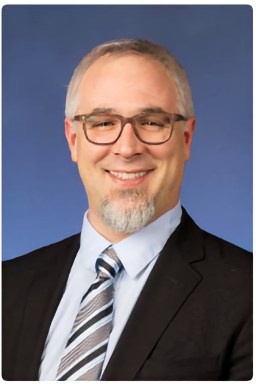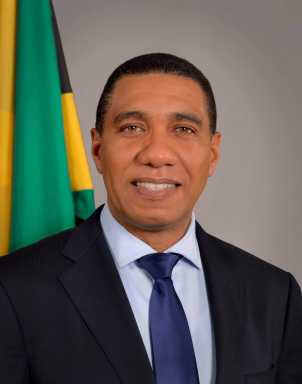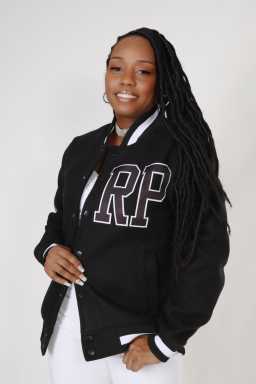Listeners:
Top listeners:
-
play_arrow
RadioJLR Just Press Play
Downstate hospital’s mission empowers immigrant caregivers: Distinguished physician

As SUNY Downstate Health Sciences University and Medical Center hosted a Community Healthy Lifestyle Fair on Sunday, a distinguished professor and physician at the university hospital’s Center for Community Health Promotion & Wellness (the Center) says that the hospital, in the heart of the Caribbean community in Brooklyn, has stepped up to address challenges facing the elderly population and caregivers.
Dr. Michael Reinhardt – a physician, assistant professor, clinical advisory dean, director of Geriatric Psychiatry Fellowship, director of Brooklyn Initiative to Develop Geriatrics Education, and director of Center of Excellence for Alzheimer’s Disease at SUNY Downstate Health Sciences University – told Caribbean Life exclusively that the university hospital is dedicated to supporting the unique needs of diverse communities, ensuring that patients and caregivers have the necessary resources.
“As the population gets older, caregivers—especially those from immigrant communities — are more crucial than ever,” said Dr. Reinhardt, who will be a featured speaker at the upcoming Healthy Lifestyle Fair, themed “Celebrating Health Awareness for Older Adults.”
“Caring for loved ones with cognitive or memory issues, like Alzheimer’s or dementia, is challenging and emotionally exhausting,” he added, stating that the Center addresses health disparities in diverse and often underserved communities by partnering with local organizations, using SUNY Downstate’s research expertise to offer education, screenings and support services tailored to the specific needs of these communities.
Dr. Reinhardt said a key part of their work is understanding how cultural beliefs shape health behaviors, particularly in caregiving for family members with cognitive impairments.
“This is important because caregiving practices and views on health can differ greatly across cultures, impacting how care is both given and received,” he said. “Caregiving, in many immigrant communities, is often seen as a family duty rather than a situation where professionals are involved.”
Dr. Reinhardt said it is particularly challenging when family members also work full-time, noting that cultural norms often push for keeping elderly care within the family, making people reluctant to seek outside help.
He said that, in some cultures, acknowledging a loved one’s cognitive decline can also feel like a loss of face or a personal failure.
Dr. Reinhardt said these cultural beliefs about aging and dementia also influence how symptoms are perceived and when people seek medical help.
“And, for some, cognitive decline is viewed as just a natural part of aging, and not necessarily a medical issue requiring intervention,” he said, warning that “this mindset can lead to delays in getting care, often exacerbating the condition.”
Dr. Reinhardt said that one of the biggest challenges for caregivers in immigrant communities is juggling work responsibilities, while also caring for their family members.
He said these individuals are members of what he described as the “sandwich generation,” meaning that “they are responsible for their children and aging parents.
“This dual role can be incredibly stressful, leading to burnout, financial strain, and even health problems,” said Dr. Reinhardt, stating that the Center works to create support systems to help caregivers by developing resources, including respite care, educational workshops, and culturally-sensitive and language-appropriate support groups, “ensuring that caregivers receive the help they need.”
He said a big boost to these efforts is the Brooklyn Initiative to Develop Geriatrics Education (BRIDGE) program to Downstate’s Center for Alzheimer’s Excellence (CEAD), which recently received a $5 million grant from the Health Resources and Services Administration (HRSA).
Dr. Reinhardt said BRIDGE is a comprehensive program aimed at meeting the healthcare needs of Brooklyn’s elderly population by “building strong community partnerships and training healthcare workers in age-friendly and dementia-friendly care.”
Weaving in important elements of wellness, diversity, equity, inclusion and cultural humility, to make sure the program reflects and serves the diverse needs of the community, he said BRIDGE connects SUNY Downstate with primary care sites and community organizations, including NYC Health + Hospitals/Kings County, the Brownsville Multiservice Family Health Center, and even St. Thomas East End Medical Corp. in the US Virgin Islands.
Dr. Reinhardt said the program enhances education and training for healthcare professionals in geriatrics, focusing specifically on mental health, Alzheimer’s and related dementias.
Through a partnership with CEAD, he said the BRIDGE program develops comprehensive training programs, updates curricula for students in medicine, nursing and health professions, and establishes preceptorship programs.
Dr. Reinhardt said supporting caregivers, especially in immigrant communities, must cover emotional and practical needs, pointing to three key strategies that he said help caregivers maintain their well-being while caring for loved ones.
He said these are: Culturally tailored education, respite care and flexible work arrangements.
Dr. Reinhardt said culturally tailored education provides educational materials and workshops in the caregiver’s native language, stating that “respecting cultural beliefs can make a big difference.
“This helps caregivers spot early signs of cognitive decline and know when it is appropriate to seek professional help,” he said.
Dr. Reinhardt said respite care provides culturally-sensitive respite care options, giving caregivers much-needed breaks.
“This kind of support is essential to prevent burnout and ensure they can continue providing quality care,” he said.
Dr. Reinhardt said flexible work arrangements encourages employers to offer flexible work options, like telecommuting or flexible hours, which can help caregivers better balance their responsibilities, especially those juggling multiple roles.
In maintaining well-being, while caring for a loved one with cognitive or memory issues, Dr. Reinhardt advised to anticipate changes, cautioning that conditions like dementia often get worse over time.
“It is crucial to understand how they progress, so you can be prepared for changes in behavior and abilities,” he urged.
He also recommended that caregivers get support early – not to wait until they are overwhelmed.
“Reach out for support early, whether it is from doctors, community resources, or support groups,” Dr. Reinhardt said.
In addition, he urged caregivers to plan ahead by taking care of legal and financial matters early.
“Make sure important documents, like power of attorney and advance directives, are in place before the cognitive decline becomes too severe,” said Dr. Reinhardt, adding that the Center, along with other SUNY Downstate initiatives like the BRIDGE program, is “doing important work in highlighting and addressing the unique challenges faced by caregivers in immigrant communities.
“By offering culturally sensitive support and resources, these programs help caregivers provide the best care for their loved ones while taking care of themselves,” he continued.
Similar posts
© 2025. All Rights Reserved by Radio-JLR



Post comments (0)